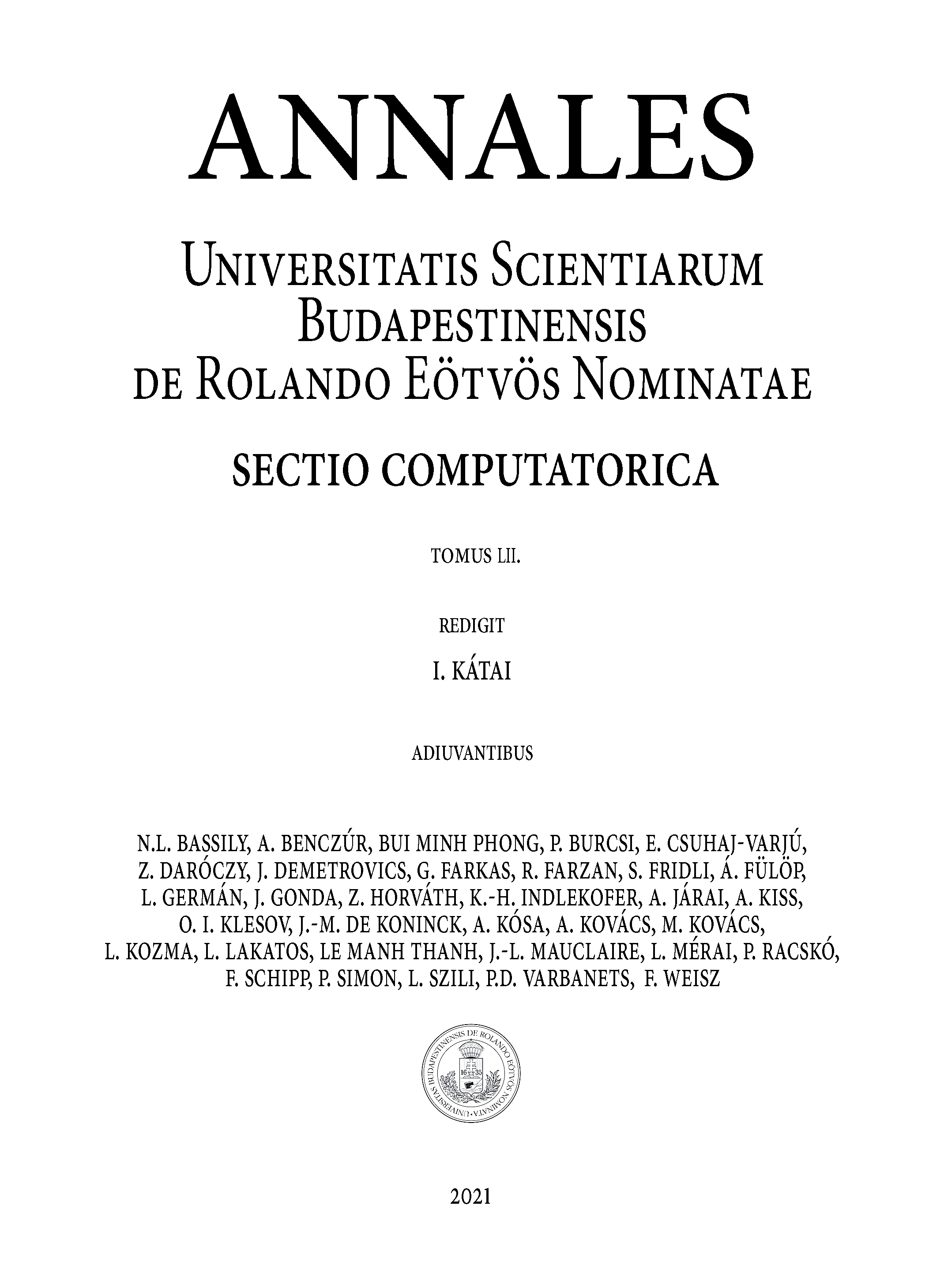https://doi.org/10.71352/ac.52.187
On a conjecture regarding multiplicative functions
Abstract. Let \(g\) be a completely multiplicative function, \(g(n)\in {\mathbb{T}}\), \({\mathbb{T}}=\{z\in{\mathbb{C}}: \vert z\vert =1\}\). Let \({\mathbb{A}}=\{\alpha_1,\ldots,\alpha_k\}\subset {\mathbb{T}}\). Assume that $$ \lim_{x\to\infty}\frac{1}{x}\#\,\bigl\{n\le x\ \bigl\vert\ \vert g(n+1)\overline{g}(n)-\alpha_j\vert < \epsilon\bigr\}= \rho(\alpha_j)>0 $$ for each \(\epsilon>0\) which is small enough. Assume furthermore that if \(\delta\in {\mathbb{T}}\setminus {\mathbb{A}}\), then $$ \lim_{x\to\infty}\frac{1}{x}\#\,\bigl\{n\le x\ \bigl\vert\ \vert g(n+1)\overline{g}(n)- \delta\vert < \epsilon\bigr\}=0 $$ if \(\epsilon\) is small enough. We formulate our conjecture on the possible \({\mathbb{A}}\) and \(g\). We can prove our conjecture for \(k=1\), \(2\) and for \(k=3\) with exception if \({\mathbb{A}}=\{1,\ \beta,\ \overline{\beta}\}\).
Key words and phrases. Multiplicative function, completely multiplicative function, additive function, completely additive.
Full text PDF
 ELTE Eötvös Loránd University
ELTE Eötvös Loránd University